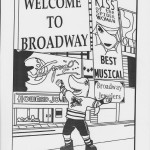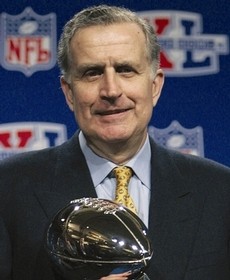 Mascots can be leveraged to create stronger connections with young elementary school-aged children and their parents, conveying an engaging, new, unanticipated facet of the team brand. During the early development of the San Jose Sharks web site, we decided to translate graphic depictions of our popular mascot, S. J. Sharkie, into entertaining learning opportunities.
Mascots can be leveraged to create stronger connections with young elementary school-aged children and their parents, conveying an engaging, new, unanticipated facet of the team brand. During the early development of the San Jose Sharks web site, we decided to translate graphic depictions of our popular mascot, S. J. Sharkie, into entertaining learning opportunities.
We took him out of context to create an exciting new type of link with young fans and their families.
One of these executions was an “S.J.Sharkie Does New York” coloring book (we also developed a companion treatment for San Jose). The booklet of 17 pictures of San Jose Sharkie in famous New York City settings was delivered through our web site for printing out and coloring or painting and as a sponsored premium hand-out at a game.
 We had taken S.J.Sharkie to New York, shuttling him around Manhattan in a van and taking staged and impromptu photos of him, occasionally stopping traffic, frequently dealing with women of all ages who fell in love with him on first sight. Afterward, we cleaned the color out of the photos to generate the images you see here.
We had taken S.J.Sharkie to New York, shuttling him around Manhattan in a van and taking staged and impromptu photos of him, occasionally stopping traffic, frequently dealing with women of all ages who fell in love with him on first sight. Afterward, we cleaned the color out of the photos to generate the images you see here.
The thousands of nationwide and local downloads of the coloring book from the site suggest we hit an harmonic chord.

